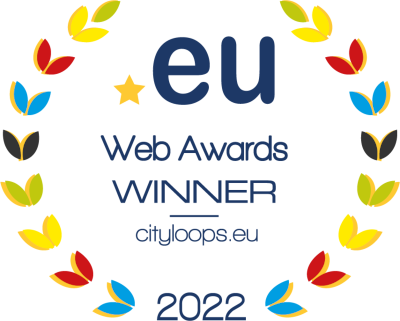News
New handbook for local and regional governments on circular bio-waste management
18 Oct 2023
In addition to its handbook on circular construction, the CityLoops project has also produced a handbook on circular bio-waste management. The handbook shows in-depth the circular activities and instruments that Apeldoorn (the Netherlands), Mikkeli (Finland), Porto (Portugal) and Seville (Spain) have implemented during the four years they worked on CityLoops, and provides other cities and regions with a step-by-step overview of how they can replicate these activities within their own context.
Bio-waste represents between 30% and 50% of municipal solid waste generated in Europe, therefore local authorities need to implement solutions and measures to slow, narrow and close biological cycles if they want to make the circular transition a reality. The handbook on bio-waste management highlights how that has been done in CityLoops, differentiating between bio-waste prevention, collection and valorisation. In addition, the handbook shows how through a series of cross-cutting actions, municipalities can create an enabling environment that supports the adoption of circularity by all local stakeholders. These “enablers” have been used within CityLoops all along the implementation of demonstration actions (i.e. during, but also before and after) and have been integral to its success.
The handbook provides a step-by-step overview of how cities across Europe can replicate the work done in the project and feature practical examples outlining how cities implemented these developed tools, why they made certain decisions, what they could have done differently, and how all this fits into broader European circular strategies and policies.
The handbook was introduced during the final CityLoops webinar on bio-wáste. The webinar followed the structure of the handbook to present in depth the project’s work with circular bio-waste, giving an overview of how its results, lessons learnt and best practices can be replicated in cities across Europe. The webinar can be watched on YouTube here.
To download the handbook, click here
All news


